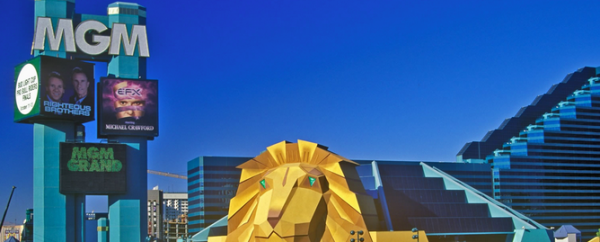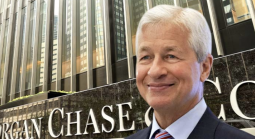MGM to Build Casino in Connecticut
HARTFORD, Conn. (Associated Press) — MGM Resorts International revealed plans on Monday for a $675 million waterfront casino in Connecticut’s largest city, the latest salvo in a competition with two Native American tribes that run two of the world’s largest casinos in the southeastern part of the state.
MGM is already building a nearly $1 billion casino in Springfield, Massachusetts, that threatens to take revenue and jobs away from the Foxwoods Resort Casino and Mohegan Sun in Connecticut. The Mashantucket Pequot and Mohegan tribes responded by proposing a casino less than 20 miles away from Springfield in northern Connecticut that was approved by Connecticut officials and awaits final approval by federal authorities.
The two tribes said in a statement Monday that the Bridgeport casino isn’t anywhere near receiving required approval from the state legislature and Democratic Gov. Dannel P. Malloy. They also said approval of the resort would violate the gambling compact between the tribes and the state that gives the tribes exclusive casino development rights in Connecticut.
MGM and its partner on the Bridgeport casino, development company RCI Group, vowed to “work diligently” to obtain the needed approvals.
The Bridgeport casino would be located along Long Island Sound in Bridgeport’s Steelpointe Harbor, the same area where President Donald Trump proposed a casino in the 1990s.
The new casino would include 2,000 slot machines, 160 table games, a 700-seat theater, a 300-room hotel, restaurants and retail shops, according to MGM. It would add more than 7,000 new jobs in the Bridgeport area, as well as provide $50 million in license fees to the state this fiscal year, $8 million in yearly payments to the city of Bridgeport and $4.5 million in annual payments to surrounding communities, according to MGM.
James Murren, MGM’s chairman and chief executive officer, said the casino “can help to turn the economic tide of this state.”
“We just need the political commitment to make it happen,” said Murren, who is a Bridgeport native.
Malloy said later Monday that he hadn’t reviewed the Bridgeport proposal. He said if the state violates the compact with the tribes, it could lose nearly $500 million over the next two years in revenue from the tribes’ two casinos. The state gets 25 percent of the slot machine revenue from Foxwoods and Mohegan Sun under the compact.
“I can’t imagine any scenario in which the tribal nations would agree to open up the compact on those grounds,” Malloy said. “I can’t imagine entering into an agreement with any entity that would endanger our agreement with the tribal nations.”
MGM sued Connecticut in 2015 over the process used by the state to approve the casino proposed by the two tribes in East Windsor, about a 20-minute drive from the Springfield casino site. MGM said it was put at a competitive disadvantage after Connecticut officials created a special pathway for the tribes to build a casino on non-tribal land.
A federal appeals court in June 2017 upheld a lower court judge’s decision to dismiss the lawsuit.















